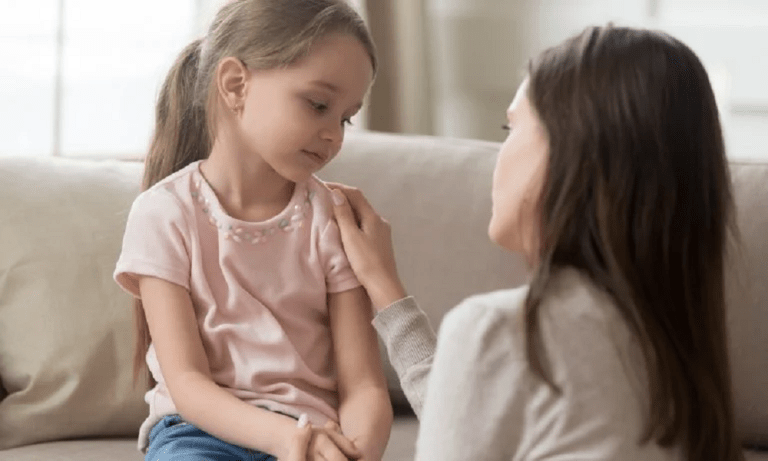Children are a blessing. In our role as parents, we take all precautionary steps to protect our children from any unfortunate incidents, but sometimes they are exposed to events that may prove traumatic. A few factors contributing to trauma are injuries in the past, like sexual abuse, domestic violence, loss of a loved one, exposure to civil war, and sex trafficking.
How Do You Know The Child Is Facing Trauma?
We must pay attention to any changes in our children’s behavior. There is no hard and fast rule, as each kid reacts to trauma differently. Some of the kids face loss of appetite, sleep, and self-confidence. Some kids have flashback memories that cause them emotional distress.
Many children don’t want to talk about that particular event. Even thinking about it upsets them, so they keep it to themselves. Talking to your child and interacting with them more can help you build a relationship of trust.
Here are a few steps you can follow to assist children who have been traumatized.
Don’t Hesitate To Ask For Help
People can only assist if they understand or experience the relative situation. When dealing with traumatized children, it is important to become educated about how they behave, their symptoms, and measures to recover them.
If the child’s trauma is severe, parents can seek additional help or enlist the services of nurses to visit the child in public settings, such as schools. Nurses are medical professionals, well-versed in providing quality care. Their extensive knowledge, whether acquired from traditional masters in nursing programs or accelerated online BSN to MSN programs, allows them to devise customized care plans for patients of all ages.
It is even possible to enrol your kids in schools that will help them work through their trauma in a positive and supportive setting, as these Alpine Academy Utah reviews show, so if that sounds like something you might be interested in, it is definitely worth exploring.
Take Help From Professionals
To deal with situations better, you may need a professional or a medical expert to help you understand the circumstances.
Talking to a professional advisor or physiological therapist will help you take precautionary steps in the first place, like hiding all the sharp objects, locking outside and roof door, and not leaving them alone will help them to save from bigger damage.
Spend Time
Children need extra support and comfort from their companions to deal with trauma, as some kids don’t want to share their bitter memories. You should try spending time with kids, making an additional bond to gain their trust.
Walking in the park, dancing or singing with them, asking for help in cooking, or a simple talk will assist in developing a trustful relationship and help children to share incidents or problems they are facing in their life.
Be Patient, Don’t React
Sometimes it is not only difficult for the children to deal with the trauma, but as an individual, it is also very stressful to accept that your child needs medical or psychological assistance.
Many trauma-triggered behaviors by kids can also make you too distressed that you outburst and show anger in front of them; this response makes a child lose trust and faith.
Try to pause for the reaction habitually. It helps your brain to heal and develop appropriate behavior in response to the aggressiveness shown by your child.
Being patient will save by creating a rant that causes more pain and trauma for the child.
Try To Create Healthy Self-Esteem
Confidence and security are the roots of healthy self-esteem. As you demonstrate confidence in your child and provide a safe environment for them to explore the world, you build their sense of security.
A child will develop high self-esteem if they continuously hear praise and acknowledgment. Avoid using words or vague compliments that make them sad and feel less special. Instead, highlight the special and unique qualities that make your child a special person.
Try to provide endless opportunities to help them shine and praise their efforts, initiatives, and diligence.
Set Soothing Routines
Different ages of children will develop different symptoms of trauma. Thus you have to react accordingly. For school-age and pre-teens, you have to play and snuggle with them to make their inner thoughts pour out, but teens should become friends or companions so they can trust you to share what they are feeling.
No matter their age, you should try to set a routine that suits and uplifts their mood. Some bedtime talk and stories and playing indoors and outdoors will assist your kid in dealing with anxiety and stress.
If your child is older, make it a routine to give a goodnight hug and chat, listen, or laugh together. Spending a few extra minutes with your child can help him, or her feel calm, safe, and relaxed.
Maintain A Healthy Lifestyle And Diet
To recover from traumatic loss, a child must follow a proper diet and maintain a healthy lifestyle. Research shows that kids with a large amount of processed and canned foods, sugar drinks, and snacks harm child behavior that can worsen the triggers the kids face.
Try to maintain a regular schedule of healthy snacks and meals, give them time to exercise or play outside, and ensure they get a good night’s sleep. It will help keep your child’s mind and body healthy and settle their traumatic stress level.
Wrap Up
Although the above factor seems like the things you already do for your child, additional support is the first line of defense. The time you give your child develops love and support and brings your child close to you.
You should also monitor the condition of the child. As many traumatic triggers could worsen if left untreated, they seek an immediate medical professional or a mental advisor for physiological sessions and therapies.



Comments are closed.